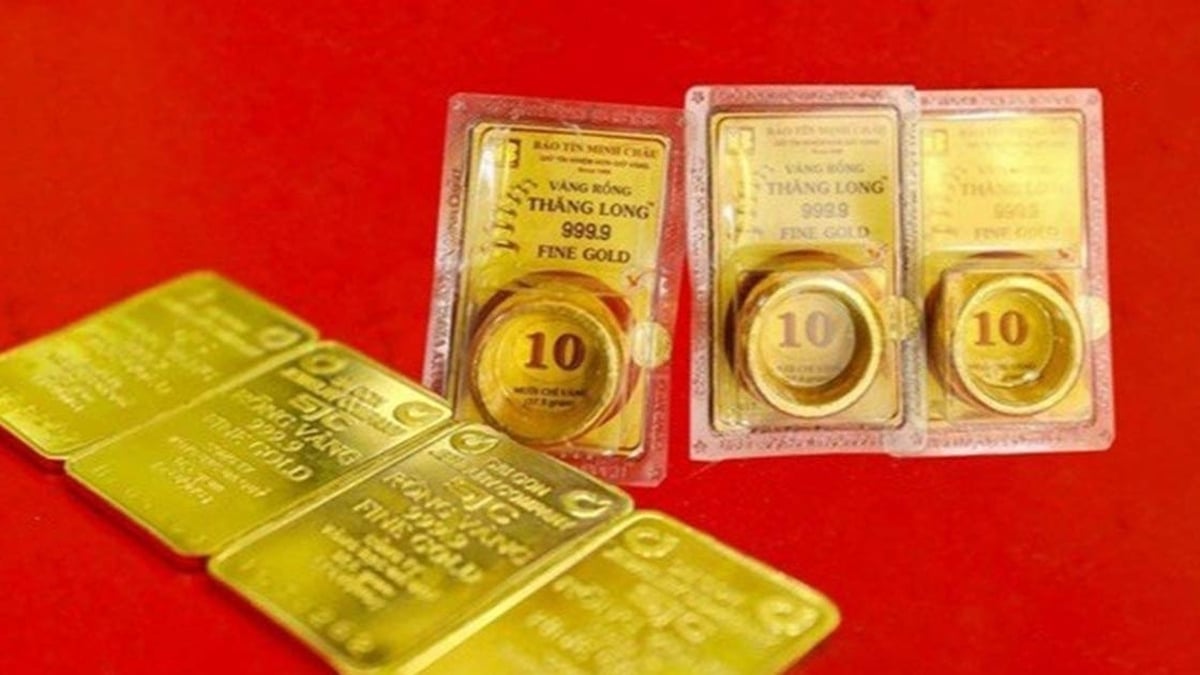Negative sentiment dominated the market as the exchange rate pressure increased to the highest level since the beginning of the year, coming from the US government bond interest rate approaching 5%, the highest level in 18 months. This development triggered a sell-off since the beginning of the week, causing all sectors to lose points. The domino effect of mortgage liquidation further prolonged the decline in the following sessions.
At the end of the week, the VN-Index still recorded a decrease of 46.7 points, equivalent to a decrease of 4.0% compared to the end of last week. At the same time, the HNX-Index decreased by 4.4% to 228.5 points and the UPCoM-Index decreased by 2.6% to 85.6 points.
The anxiety caused liquidity to remain low. Trading value on the three exchanges only recovered slightly this week, reaching an average of VND18,516 billion per session, up 12.5% compared to the previous week.
Foreign investors returned to net buying on all three exchanges, with a value of VND779 billion on HoSE, VND117 billion, down 23.6% compared to the previous week on HNX and VND12 billion on UPCoM. In total, foreign investors net bought VND909 billion across the entire market last week.
Mr. Dinh Quang Hinh - Head of Macro and Market Strategy Department, Analysis Department, VNDIRECT Securities Company and Mr. Bui Khoa Bao - Head of Investment Department, VPS Securities Company both commented that we need to wait for more information and signs to see whether the market has bottomed out or not.

Market liquidity compared to a month earlier.
Nguoi Dua Tin: Although the market was expected to recover, last week the VN -Index still recorded a decrease of 4% compared to the previous weekend . Can you explain why the market moved like that and what is your forecast for the market situation in the coming trading week?
Mr. Dinh Quang Hinh: Contrary to expectations that the recovery momentum could be maintained for the second consecutive week, the Vietnamese stock market recorded four consecutive strong correction sessions last week and only partially recovered in Friday's trading session.
The sudden strong selling momentum often appears in the afternoon session, catching investors off guard and negatively affecting market sentiment. This may be due to the proactive margin reduction or liquidation activities of some lenders.
Therefore, it is necessary to observe the impact of this development on the market trend in the coming sessions. The positive point that appeared in the last session of the week was that there was a glimmer of information supporting the exchange rate.
Specifically, in a recent speech on monetary policy, Fed Chairman Jerome Powell signaled that he may continue to stop raising interest rates at the upcoming meeting in early November. This could curb the recent sharp increase in US government bond yields.
In addition, VPBank’s completion of a private placement of shares to Japanese investor SMBC worth $1.5 billion will help supplement foreign currency supply. At the same time, the continuous net buying by foreign investors during the down sessions last week was also a notable supporting factor for the market.
Mr. Bui Khoa Bao: I expect a recovery when the market fluctuates greatly during the day and liquidity increases. The reason is that the current market has decreased enough to clear all margin goods, so a massive sell-off (washout) is very unlikely to happen.
The important thing at the present time that we need to see is the phenomenon of "blood change" of investors by creating an exchange of expectations between the group that is frustrated by losses and has lost confidence in the stock market and the group that participates in the VN-Index because the market has fallen deeply to a cheap and attractive price for long-term investment cash flow.
Therefore, we need to wait for more signs of bottoming out to see how far the market has fallen and which area is in equilibrium. However, with the market falling shockingly for 4 consecutive sessions, in my opinion, a recovery session at the end of the week does not mean anything. Therefore, if investors want to trade, they should trade on the stocks they own and surf T0 to reduce capital costs and recover faster when the market rises again.

Market valuation over the past year (Source: Fiintrade).
The Messenger: In a period when the market trend is unclear, investors are becoming more cautious. In your opinion, what is the most necessary investment strategy at this time?
Mr. Dinh Quang Hinh: Regarding investment strategy, long-term investors can consider gradually buying stocks during downward corrections because the market has reached a fairly attractive valuation range to buy and hold.
In the context of interest rates reaching multi-year lows and the profits of listed companies starting to recover, buying and holding stocks for long-term investment is a worthwhile option. As for short-term investors, they should still maintain discipline, wait for the market to confirm a successful second bottom before participating to minimize risks and increase the probability of success.
Mr. Bui Khoa Bao: In my opinion, investors should implement a strategy divided into 2 parts. For those who are holding large proportions, priority should be given to solving losses by trading T0.
During this period, investors should buy the bottom, reduce capital price and keep the same proportion and absolutely do not increase the proportion on average because most of the stocks that people are stuck with are stocks that have increased rapidly and led the wave of the previous wave, for example real estate, stocks,... and usually a group of stocks will not be able to lead the wave for two consecutive cycles.
Investors who exited early and are still holding money should prioritize testing the waters, disbursing small amounts of money into potential stocks. The main reason is that it is impossible to know where the top and bottom are until they have passed.
But on the contrary, investors must also understand that the market has collapsed 14% from the peak of 1,250, so this price zone is certainly not a risky zone. Just keep believing in the market, look long term and be ready for a strong reversal to happen at any time .
Source

































































































Comment (0)